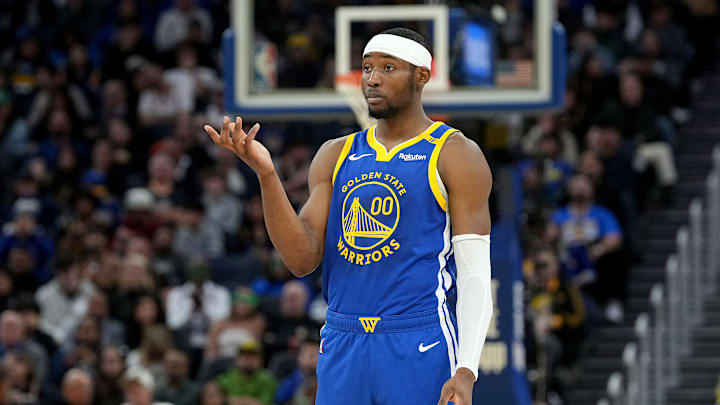It's safe to assume that both Jonathan Kuminga and the Golden State Warriors would like to put this chapter behind them. Neither seem willing to budge on their preferred next step, but the one common thread appears to be that they don't see a long-term future together.
Unfortunately, there's one issue working against Kuminga and the Warriors that can be attributed to an external source: The CBA's Base Year Compensation rules.
The BYC rules essentially state that, as it pertains to Kuminga, the outgoing salary in any potential sign-and-trade would be calculated at a rate of 50 percent. This is based on several factors, including Kuminga receiving a projected raise of upward of 20 percent in annual salary.
In other words: If the Warriors were to sign-and-trade Kuminga with a first-year salary of $22 million, it would reflect as though they were sending $11 million out in a potential trade.
That's inevitably complicated the matter of matching salaries with interested parties. Options still remain, but the most commonly theorized workaround would require Golden State to include either Buddy Hield or Moses Moody in a Kuminga sign-and-trade.
According to Jake Fischer of The Stein Line, the Warriors refuse to allow the CBA's Base Year Compensation rules to force them into trading Hield or Moody.
"Another note on Golden State: The Warriors are not open to any sign-and-trade proposal for Kuminga that, in accordance with the wonky Base Year Compensation rules in the league's Collective Bargaining Agreement, would force them to match any inbound salary by parting with either Buddy Hield or Moses Moody in an outgoing trade package. Golden State values both players quite highly, sources say, while maintaining high expectations for both Hield and Moody to be consistent contributors who prove reliable in providing the necessary spacing to boost the Warriors' half-court offense in the postseason."
For as frustrating as the Kuminga saga has been, the Warriors are justified in being unwilling to part with multiple valuable assets exclusively to avoid financial penalties.
Warriors refuse to trade Buddy Hield, Moses Moody simply to evade CBA
Hield and Moody offer invaluable sources of perimeter depth to a Golden State team with a top-heavy roster structure. Hield is one of the best shooters of his generation, boasting a career mark of 39.7 percent from beyond the arc, while Moody is coming off of a career year and is still just 23 years of age.
It'd be entirely fair to include either HIeld or Moody in a trade that the Warriors believe would discernibly improve the roster, but simply avoiding financial repercussions is a low bar to set.
Perhaps it'd prove worthwhile in the end, with the returning package outweighing the value that Kuminga and either Hield or Moody would provide. It's a risky endeavor when one considers how thin the Warriors' rotation already is, however, as well as how important preserving flexibility will be.
Golden State is still hoping to sign some combination of Malcolm Brogdon, Al Horford, and De'Anthony Melton, and those efforts would be restricted by the wrong trade.
If the Warriors complete a deal that negatively impacts its apron status, it could lose access to the Taxpayer Mid-Level Exception. In that scenario, it would become fair to question if Horford would still be willing to sign with Golden State.
A former NBA champion whose game has aged like wine, Horford is certain to have interested suitors who have access to the Mid-Level Exception—perhaps even in its full form.
Competitors could ultimately include the Denver Nuggets—if they decide not to gamble on Jonas Valanciunas—and the Miami Heat. That's merely speculative, but it's worth noting that both franchises have access to the full Non-Taxpayer Mid-Level Exception.
With this in mind, the Warriors' inactivity on the Kuminga front ultimately comes down to the restrictions they face due to a bizarre CBA rule.
